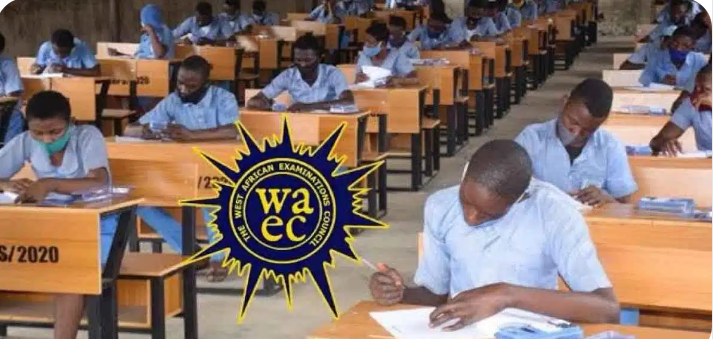
Chaos in Akure: Thugs Allegedly Hired by Parent Assault Vice Principal Over Exam Malpractice Clampdown

What was supposed to be a routine day of academic integrity and discipline at Complete Child Development College in Aule, Akure, took a violent turn last week as a school vice principal became the target of a brutal assault allegedly ordered by a parent enraged over an exam malpractice crackdown. The shocking incident has sent waves of concern throughout Ondo State’s educational community, raising alarm about the growing audacity of parents and the vulnerability of educators.
The vice principal, identified as Mr. Rotifa, had reportedly been enforcing the school’s strict no-phone policy during the ongoing West African Senior School Certificate Examination (WASSCE) when he confiscated an Android phone from an SS3 student caught attempting to cheat. What followed has been described by witnesses and preliminary reports as a disturbing escalation from disciplinary enforcement to physical violence, all rooted in one parent's refusal to accept academic accountability.
According to a statement released by the Ondo State Ministry of Education, signed by the Director of Schools, the incident unfolded on May 26, when Mr. Rotifa found a phone with the student—an act considered a clear violation of exam regulations. The confiscation, though routine for school officials, sparked outrage from the student’s mother. Days later, she reportedly stormed the school premises, launching a verbal assault on the management in an attempt to reclaim the phone. In a move seen as an attempt to de-escalate tensions, the school’s proprietor allegedly ordered the return of the device to the angry parent.
However, the situation took a darker turn when the student’s elder brother—said to be a former student of the same school—arrived shortly afterward, threatening and harassing Mr. Rotifa. The school, sensing the rising tension, advised the vice principal to report the matter to the police. Acting on this advice, Mr. Rotifa lodged a complaint, prompting two officers to accompany him in a police van to locate the suspects.
What happened next could easily be mistaken for a scene from a crime thriller: as the police officers returned to the station with Mr. Rotifa in their vehicle, they were ambushed. According to eyewitness accounts, the suspected thugs, led by the student’s brother, waylaid the van, forcibly removed the vice principal from the vehicle, and subjected him to a vicious beating. The police officers, overwhelmed and outnumbered, were unable to stop the attack. Mr. Rotifa was rushed to the hospital, where he was treated for multiple injuries.
The school’s principal later confirmed that although Mr. Rotifa has since been discharged from the hospital, he has yet to return home due to safety concerns. He reportedly remains in hiding, fearful that his assailants may strike again. This climate of fear has spread among the school’s staff and students, particularly as the WASSCE examinations continue, casting a shadow over an already stressful academic period.
As news of the incident spreads, it has prompted widespread condemnation from educators, parents, and civil society groups. Many have voiced their concerns on social media, calling for swift justice and stronger protection for teachers and school administrators. “This is not just about one man being beaten up,” one Twitter user wrote. “It’s about the collapse of respect for education and the dangerous message this sends to our children.”
The Ondo State Ministry of Education has pledged to continue investigations into the matter and to ensure that the perpetrators are brought to justice. In its official statement, the ministry noted that efforts are now underway to bolster security around the school, promising increased police presence and enhanced surveillance throughout the remaining exam period.
Attempts to reach the school’s principal for further comment proved unsuccessful, as the administration appears to be exercising caution in the wake of the attack. Meanwhile, the identity of the student involved and her family remains undisclosed to the public for safety and legal reasons.
The larger implications of the incident are reverberating far beyond Akure. It underscores a troubling trend where educators are increasingly at risk of violence for simply doing their jobs—upholding standards, enforcing discipline, and preserving the integrity of national examinations. Several education stakeholders have called for the Ministry of Education to introduce emergency measures, including legal reforms and teacher protection laws, to prevent future occurrences of such assaults.
“This is a wake-up call,” said a representative from the Nigerian Union of Teachers in a radio interview. “We can’t allow our teachers to become targets. They are not the enemy—they are the backbone of our future.”
The incident has also reignited discussions about the role of parents in academic environments. While parental involvement is generally encouraged, education experts argue that it must come with a respect for rules and the educational process. When parents take matters into their own hands with violence, it disrupts the entire system and erodes the moral fabric of learning institutions.
As Complete Child Development College resumes its academic calendar under increased security, questions remain about the broader consequences of the attack: Will Mr. Rotifa return to his post? Will the assailants face the full weight of the law? And most importantly, what lessons will be drawn from this alarming breach of school safety?
For now, the school community, and indeed the state, watches and waits. One thing is certain: this was more than just an isolated outburst of anger. It was a brazen attack on the values of education, and how it is resolved may shape how safe Nigerian classrooms are in the years to come.


